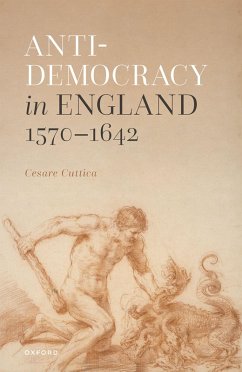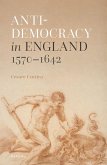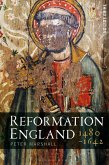Anti-democracy in England 1570-1642 is a detailed study of anti-democratic ideas in early modern England. By examining the rich variety of debates about democracy that took place between 1570 and 1642, it shows the key importance anti-democratic language held in the late Tudor and early Stuart periods. In particular, it argues that anti-democratic critiques were addressed at 'popular government' as a regime that empowered directly and fully the irrational, uneducated, dangerous commonalty; it explains why and how criticism of democracy was articulated in the contexts here under scrutiny; and it demonstrates that the early modern era is far more relevant to the development of democratic concepts and practices than has hitherto been acknowledged. The study of anti-democracy is carried out through a close textual analysis of sources often neglected in the history of political thought and by way of a contextual approach to Elizabethan, Jacobean, and Caroline history. Most importantly, the study re-evaluates the role of religion and cultural factors in the history of democracy and of political ideas more generally. The point of departure is at a time when the establishment and Presbyterians were at loggerheads on pivotal politico-ecclesiastical and theoretical matters; the end coincides with the eruption of the Civil Wars. Cesare Cuttica not only places the unexplored issue of anti-democracy at the centre of historiographical work on early modern England, but also offers a novel analysis of a precious portion of Western political reflection and an ideal platform to discuss the legacy of principles that are still fundamental today.
Dieser Download kann aus rechtlichen Gründen nur mit Rechnungsadresse in A, B, BG, CY, CZ, D, DK, EW, E, FIN, F, GR, HR, H, IRL, I, LT, L, LR, M, NL, PL, P, R, S, SLO, SK ausgeliefert werden.









